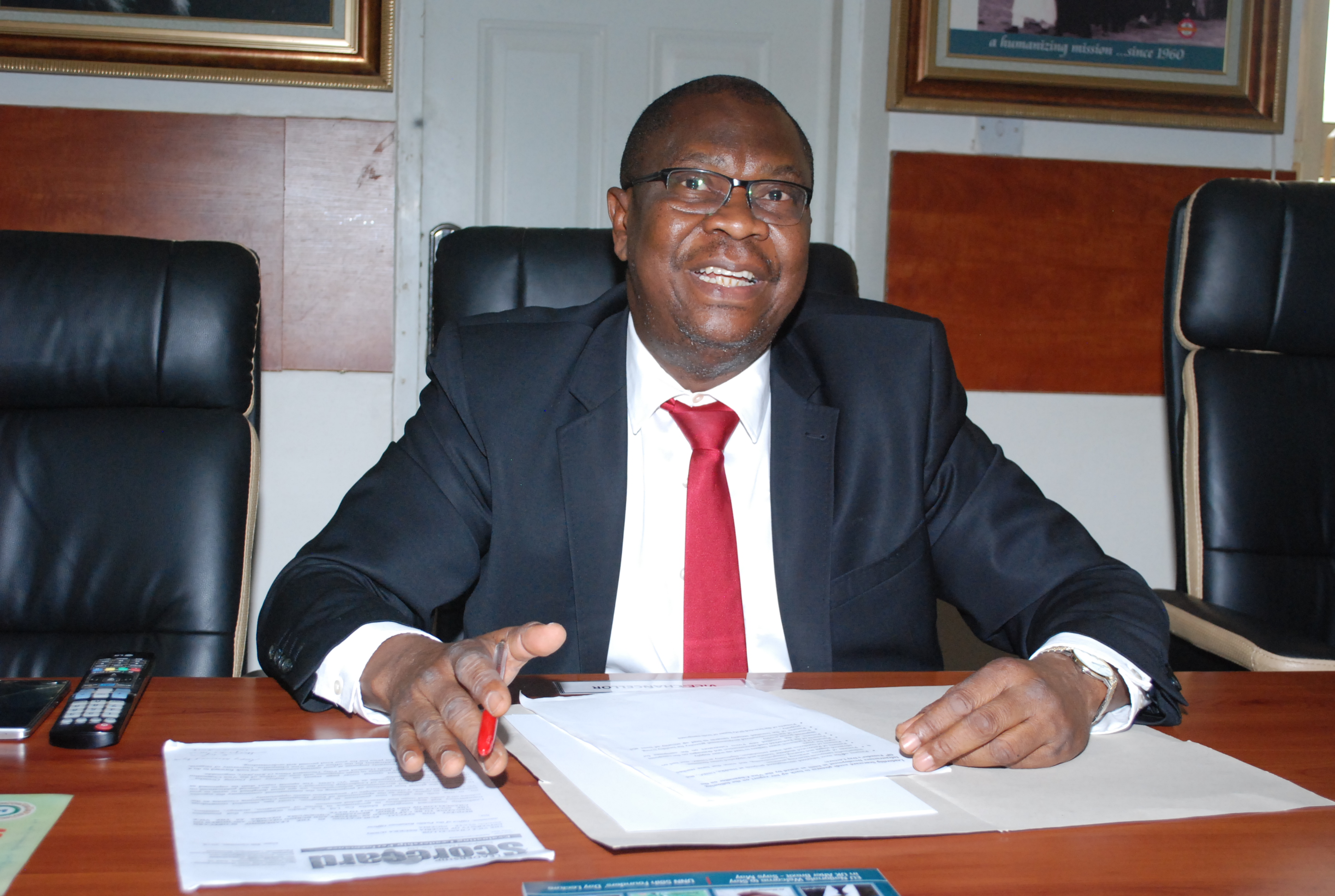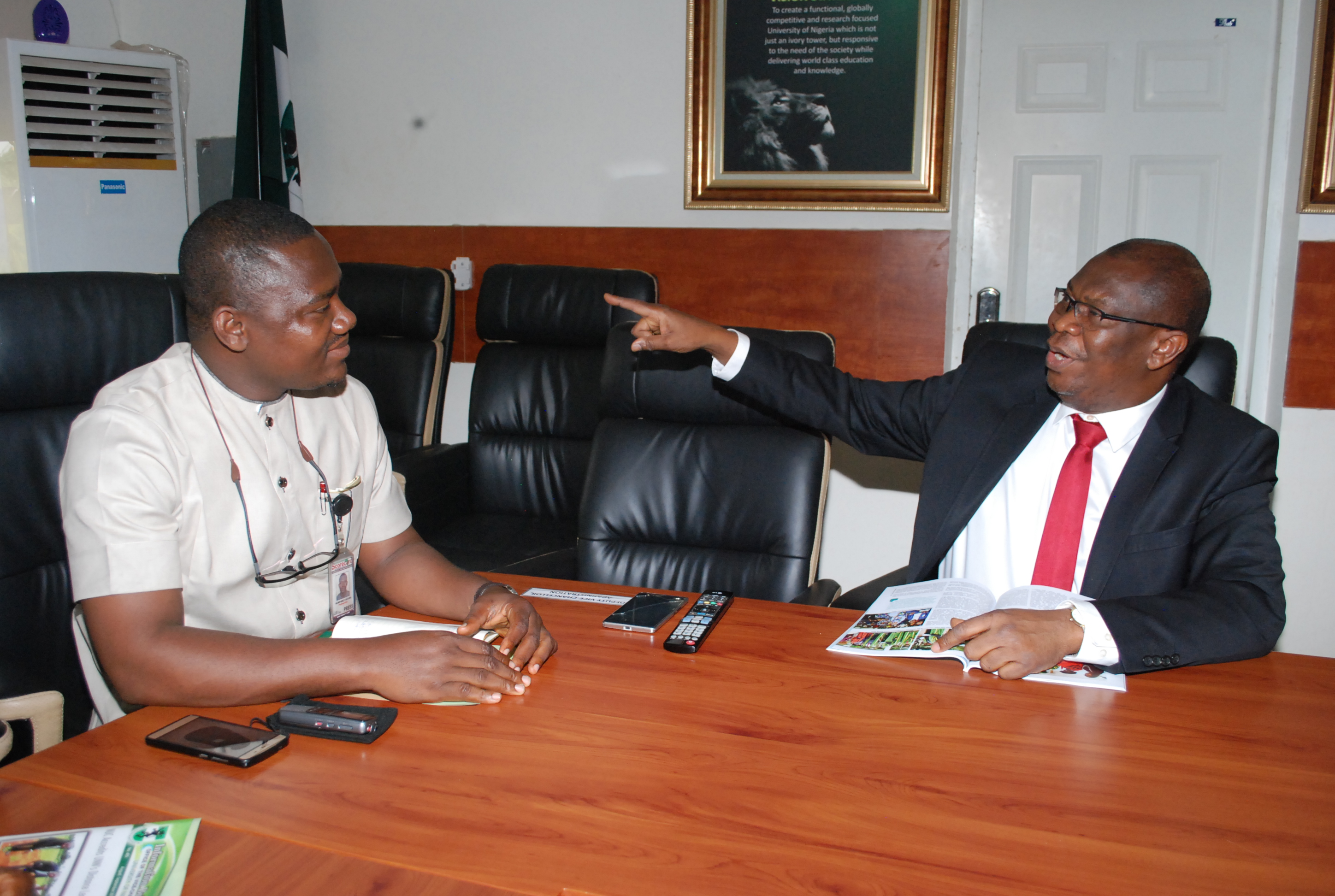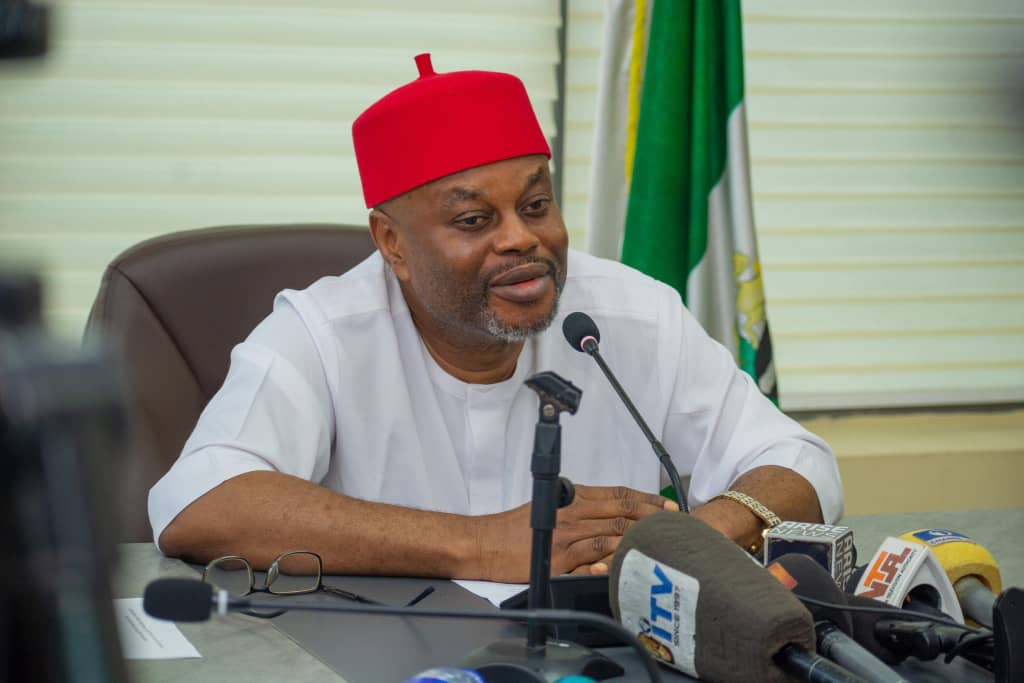 The Vice Chancellor of the University of Nigeria Nsukka, Professor Benjamin Chukwuma Ozumba, speaks on how much the approach to learning and research has changed since he assumed office as the helmsman of one of Nigeria’s most prestigious higher institutions of learning and why the nation must adopt the learn-with-a-loan approach if her students/graduates must get world-class education.
The Vice Chancellor of the University of Nigeria Nsukka, Professor Benjamin Chukwuma Ozumba, speaks on how much the approach to learning and research has changed since he assumed office as the helmsman of one of Nigeria’s most prestigious higher institutions of learning and why the nation must adopt the learn-with-a-loan approach if her students/graduates must get world-class education.
As vice-chancellor of the UNN, you have achieved great milestones. What strategy did you adopt upon your appointment to help you achieve this?
Besides calling on my maker to help me, since He (was the one who) gave me this assignment, I adopted the art of listening. To solve any problem, you have to be a great listener and believe in dialogue to achieve peace at all costs, for, within the fabrics of peace, the seeds of progress are sown.
I came on board and met a very fractious community. The chairman of council had just been removed and the unions were spoiling for war. I adopted the principle of dialogue, communication and transparency (which is a clincher). Once people see that you are transparent and function with rules and regulations, it collapses all manner of oppositions and attacks. You can always be predicted to do the correct thing. This brought peace.
Also, to reassure the union, I started paying up all their outstanding emoluments. Further, I ensured that staff welfare became a functional aspect of work by effecting promotions.
As for students’ welfare, the students’ union had just been banned when I resumed, but I gave them the leeway to conduct free and fair elections and, since then, every year, student union leaders have been sent abroad to Sweden to know what student unionism is all about. Also, we equipped the students’ hostels with internet services, the water supply is improved (both boreholes and water from the state grid). Boreholes do not function properly at Nsukka, but we have provided tanks which supply water to the students there and, soon, water will be reticulated from boreholes.
Besides all these, I ensured that the obstacles standing in the way of students’ academics were also done away with. So far, we have more than 200 laptops available to students for learning and they are deployed during CBTs. I reached out to corporate bodies to help and, now, we have a computer centre donated and operated by Zenith Bank.
This is how we got peace and mad progress; getting the administration to work with the Senate and Governing Council.
We all know that the funding for education in the budget has always been low. Knowing this, does the university have any form of extra income besides its share in the budget?
We have to be careful when we say the education budget is ‘low’, because the Federal Government is doing its best. It is not only what you see in the budget of the Federal Ministry of Education that is education-related. When the Ministry of Health provides the health insurance scheme for lecturers, Ministry of Water Resources provides water and sanitation, Ministry of Communications provides internet services or the Ministry of Works is constructing roads just as it is doing now, they are all funding education.
That said, the University of Nigeria has reached out to improve its budget and the first point in budget is to block loopholes; this will improve funding. You need to stop money leaking out to private pockets and deploy them judiciously. This was once the issue. No more. We have reached out to the corporate world to come do some corporate social responsibility thing with us. We have hopes of tapping into our alumni by improving and increasing our alumni database. We shall use that to source for funds.
Again, we have done what is not done in Africa; we have created the first university-based innovation hall in the UNN. We have gone into the making of drones and so on. When the funding begins to come in for that (and it will), it will make things easier.
Our Science Park is coming on-stream. We have got the interest of 15 companies and when their materials begin to come in, that is funding.
Also, for the first time, international agencies are picking deep interest in the university. As you know, we have got the first World Bank Centre of Excellence. Other agencies like the African Development Bank, SIDA (from Sweden) and others are also coming in. Remember, as we are providing services, we get paid. That is funding.
Would you be objective enough to score your administration’s time in office?
I would let you score me, but other international agencies have scored the institution. As regards higher education, we have been recognised as one of the best universities in the world. I will show you evidence. For the past three years, the UNN has been rated as the best in research in Nigeria and one of the best in the world by Google Scholar Citation, which is a reflection of the public’s opinion of your institution.
If you go to the university’s farm, we have delved into areas we once could not; piggery, snail-farming etc.
We have got the Nigeria Liquefied & Natural Gas to donate laboratories to our engineering department.
Our dental and medical progammes are highly rated and all that is a plus for the institution. The faculties of medicine, social science, arts and humanities are also rated as some of the best in the world.
We got a letter from the Times’ Higher Education Subject Ranking, informing us of this development. We were offered a complimentary VIP ticket to the exclusive launch of the rankings by the body this year (for physical sciences, clinical health and psychology) at the Ritz Carlton Hotel.
That letter speaks for itself. Here it is.
Over the years, many Nigerian politicians and education activists have proffered free education as the solution to Nigeria’s educational issues. What is your opinion of their position and, if you do agree, how sustainable is free education?
When you say ‘free’ education, it needs to be qualified. You must have heard the cliché “there is no free lunch”. It is true. That lunch has been paid for one way or another. In countries where ‘free’ education is being practiced, it has been paid for one way or another (which is, most times, through loans). The issue is that I am given a version of ‘free’ education.
In my own time in the university, the loan scheme was there (about N5000) for those who could not pay their fees. The loan was payable over 10 years. If you go through the university and remain unable to pay off such a loan with extremely low interests, there must be something wrong with the educational system. My recipe, therefore, is for this to be backed up by a vocational training programme. Sadly, there is no functional training programme in Nigeria. What you have are faculties and departments, but they do not do practical vocational training.
I wanted to make furniture for the Science Park, but I could find no one to give me what I wanted. I found a carpenter who could do that, but he turned out to be a lawyer, a senior lecturer. His was cheaper and better than others. The point is; he has acquired a skill that comes in handy and readily puts food on his table.
In vocational education, you do not give someone a written test. Do you want to give him a written test on how to make chairs? That is no vocational education and that is where we got it all wrong. We have a Faculty of Vocational Studies here and, when I asked the American who heads it, he said “there is nothing like that in America”. It is where you acquire skills that can put food on the table. In Germany, they have vocational education, where you are trained to have a practical skill, no matter your field of study. This is lacking in Nigeria.
The essence of going to the university is not to go disturb the vice-chancellor for a job or disturb the government after graduation. We have all these fancy government programmes and projects but none of them are targeted at vocational people who can go into farming where people can be properly trained to keep training others. If you go to a great vocational school, when you graduate, you earn over N300,000 a month. That is assured, because there will always be people to teach and jobs to do. How much does a professor earn? Not much more than that, after years of slaving and learning. What’s my point? Our young people are not being properly directed.
I am trying to develop a one-year certificate programme on vocational training in the UNN. Here, after four years of study, every graduate from this school must undergo training at the institution, so as to have skills to help him put food on his table, feed others and alleviate poverty. We cannot go about fighting the indices that are said about us; that is not my nature. We have to make it clear, abundantly, that Nigeria is not the headquarters of poverty. The way to do it is to equip our young people with vocational training and direct government funding into such ventures. Our society will be the better for it in the long run.
Note, I am not saying ‘free’ education should be swapped for vocational training or that vocational training should be free. No. I am saying that loan-based education should be offered and the graduate be trained in a vocation, so as to be able to pay back in the long-run. If not, after piling the loans, the graduates would be asking “where are the jobs to pay back the loans?” The answer is in vocational training – not white-collar jobs.
Would you compare education in Nigeria in the ‘60s and now? Do you think we started getting it wrong at some point?
I wouldn’t say so. Times changed. Back then, you were trained up to Standard 6 and the Arithmetic back then is even better than what is done in universities these days. When I went to secondary school I never went into Arithmetic class, but I did well in my final exams, because I had been well taught long before then. These days the training of our young people is different; they teach them a whole lot of other stuff (computers, for example, which their forebears never got to study or learn with). So, you cannot say “it went bad”. No. The curriculum target shifted and education became compulsory up to secondary school. The colonial masters trained Nigerians up to Standard 6, just so that they could help them in administration and nothing more. These days, you want to train people to fend for themselves, be independent and contribute to societal development. You want to train global citizens, people who have knowledge of computers, certifications and all other stuff put together. I cannot say we got it wrong; I can only say there was a paradigm shift. Simple.
Before 1960, in our schools, no one learned French. They taught Latin. Today, almost every school teaches French. Back in my day, I had to study Latin and French and I pass through French-speaking cities with the French I learnt. It is a question of shift, not retrogression.
You have to tweak and redesign your curriculum to fit and address the needs of the times. This is why I am talking about vocational education. This type of education is not rigid; people sit down and think about the problems which need solving in their locale and insert the module into the curriculum. It is dynamic and needs-based.
After leaving office, how would you love the state to benefit from your knowledge and practical experience?
Well, let me state that the future will take care of itself. However, my idea is to continue to contribute to poverty alleviation, food and environmental security, as well as overall national development.
I am quite unhappy over the present state of our nation. Basically, I am a medical doctor, but I have gravitated to being a lecturer and techpreneur. Having said all this, I want to ensure that ecosystem innovation comes alive and remains sustainable in Nigeria, so as to help the nation leap-frog herself into development.
As for us here, we are going global. We are expecting the Vice President’s visit on December 23, 2018 to commission our Ecosystem Innovation Centre.










